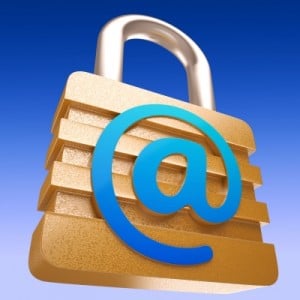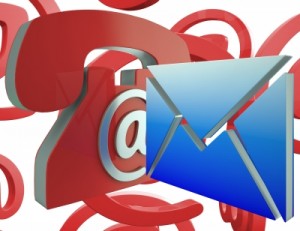Posted by Eric O. Schueler, Senior V.P. of Information Technology
Online security for both business and personal transactions is more important than ever. We have come to depend on the internet to function in day-to-day life. We pay bills, we post pictures for our friends, we shop and we play.
The internet can be a fun but dangerous playground, and you need to take care when using it. There are those out there who are looking to steal information and compromise your computer and devices.
Here are Tips to Maintain Online Security for your Computer
Install and Update Anti-Virus Software
There are several companies that provide good quality anti-virus software for virus protection. This anti-virus software will scan your computer regularly and let you know if there are suspicious files on your computer. As long as you keep it updated, it will identify and eliminate malicious software to protect your computer and your online security. HRCT recommends the Symantec Endpoint Protection Cloud which also includes a software firewall.
Install a Firewall
A firewall helps to keep hackers, viruses and worms from reaching your computer. It is a software program that screens your networks for malicious content by making sure content is coming from valid domain and protocol names. Firewall software can include logs that document what sites are trying to access your computer and automatic alarms that will warn you of an attack. By installing a firewall you will have virus protection and network security. The Symantec Endpoint Protection Cloud can again be used here because it includes a firewall. SonicWALL also has a family of firewalls that tightly integrates intrusion prevention, malware protection, and Application Intelligence and Control with real-time Visualization.
Replace your Router
Replacing your router can provide faster performance. If you don’t get consistent coverage in all areas of your business or home, it may be time to replace your router. Another reason to replace your router includes its age. Is it more than 4 or 5 years old? Do you sometime lose your internet connection?
New routers also give you better protection and online security. For example, the Dell SonicWALL Next-Gen Firewalls help businesses to move to a more secure platform, and it helps IT professionals to see applications running across a network and protect against the increasing and evolving threats to network security.
Create Secure Passwords
Your online accounts that are password protected can hold some of your most critical information. Create unique, strong passwords for each account. This means that your passwords should have a number, symbol and a mix of upper case and lower case letters. How will you remember all of those unique passwords? Create a password protected file and store it. It may seem repetitive creating a password to store your passwords, but one can be easier to remember than thirty.
Lock Your Screen or Device
Make sure your computer automatically locks after a certain period of idle time. This means that after you have been away from your computer for a few minutes, you will need to log in again to access your content. For other devices such as tablets and phones this is especially important because they have the risk of more easily being lost and or stolen. Set a pin on these devices to make sure that someone on the street can’t just pick it up and have access to your online accounts.
Update Software
It doesn’t matter whether you use a PC or a Mac, Microsoft and Apple both send software updates. These updates include security measures to combat the latest viruses and mend glitches in programs. Make sure to always install the updates as it will protect your software and devices. This is why you should read here about the end of support for Windows XP. This will be a huge online risk for anyone or any business using Windows XP. You can also read our Blog Final Days of Support for Windows XP.
Use Multiple Email Addresses
For better online security, don’t use the same email address for all of your online accounts. Use one email for social media sites and one email for your more sensitive accounts, such as your bank account. This way if your email account linked to social media (which draws more attention) is hacked, your other accounts will remain secure.
Don’t Open Emails You Do Not Recognize
It is best only to open emails from friends and trusted sites, but sometimes even that can lead you astray. If there is a questionable email do not open attachments or links. Many times you can tell just by looking at the sender’s email address. Banks do not send through 3rd party emails like Gmail. If there are emails that request any personal information don’t reply. No one from another country has just left you a million dollars!
Don’t Access Financial Accounts on Public Networks
You don’t know the secure of a network at an internet café. Who knows what malware has been installed on a machine to steal information? Sometimes there can even be bogus networks that say “Free Internet Access” in public areas such as hotels. The hacker is letting you use his network to steal your information. Avoid any sensitive accounts when on public networks, and only access financial information when you are on your own secure network. Network security is of the up-most importance.
When You Install Anything on Your Computer, Read Before Clicking “Ok”
When you download any new software onto your computer, pay close attention to the promptings before you click “ok.” Additional unsafe software can sometimes be linked to good software, and by clicking ok without reading, you may be allowing this software to install on your device. Read each box carefully before clicking ok to avoid this and only install trusted software.
Go through and Regularly Purge Programs You no Longer Use
Manage your computer’s programs regularly. Every few months, it is a good idea to look through your computer programs and uninstall anything that you don’t recognize or use. This will not only protect your computer but it will keep it running faster as well.
If you want your system checked, cleaned and anti-virus installed, you can count on HRCT to help protect your systems and data. Call today for information and to talk to our IT and Computer department. Ask for Eric O. Schueler, Senior V.P. of Information Technology at HRCT.
Call today! (757) 399-3350
Posted by Eric O. Schueler, A+, MCP, MCSE, MCTS, CSSA, ACSP – Senior V.P. of Information Technology at HRCT. Eric has been in the business of providing IT and consulting for small and medium business for more than 15 years.
Hampton Roads Communication Technologies (HRCT) provides quality business telecommunications solutions, like computer and IT support and managed service agreements to companies and organizations throughout the United States, Mid-Atlantic and the Hampton Roads Virginia cities of Virginia Beach, Chesapeake, Norfolk, Portsmouth, Suffolk, Newport News and Hampton, north into Williamsburg and south into the Outer Banks of North Carolina. HRCT keeps your company connected with 24/7 emergency service.
Call today. (757) 399-3350
Sources: google.com/goodtoknow/online-safety; techradar.com; searchsecurity.techtarget.com
Photos courtesy of: FreeDigitalPhotos.net Stuart Miles (Email and Lock) and chanpipat (Hacker)


